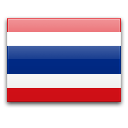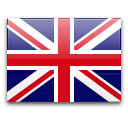When it comes to caregiving for children, safety is the top priority. At Happy Help Thailand, a leading home care service provider offering comprehensive care for families, the well-being of clients is at the core of their mission. Whether offering services as caregivers, nannies, or home aides, Happy Help’s team often works closely with children and infants.
To further ensure the safety of the little ones in their care, Happy Help can greatly benefit from enrolling its staff in a 1-day Pediatric First Aid CPR AED course with Bangkok First Aid. This course, tailored specifically for caregivers who work with children, equips them with the essential life-saving skills needed to handle emergencies with confidence.

Why Pediatric First Aid CPR AED Training is Crucial for Happy Help Caregivers
Working with children requires not only attention and care but also the ability to respond to emergencies quickly and effectively. Pediatric First Aid, CPR, and AED training provides caregivers with the knowledge and tools to act swiftly in critical situations, such as choking, sudden illness, or injury, which are more common among children than adults. Here are several reasons why this training is essential for Happy Help Thailand’s caregivers, nannies, and home care professionals:
1. Children Are Prone to Accidents
Children, especially infants and toddlers, are naturally curious and often unaware of potential dangers. This makes them more prone to accidents, such as falls, choking, or burns. Having pediatric-specific First Aid skills ensures that caregivers can properly manage these situations and provide immediate care to prevent further harm.
2. Sudden Medical Emergencies
Children may experience unexpected medical emergencies like allergic reactions, asthma attacks, or febrile seizures. The ability to recognize the signs of these conditions and administer proper first aid can save lives. This training covers how to manage these emergencies until medical professionals arrive, giving caregivers the tools to act calmly and effectively.
3. Choking Hazards
One of the leading causes of injury in children, especially toddlers, is choking. Whether it’s from small toys or food, caregivers must know how to perform the Heimlich maneuver (or abdominal thrusts) to clear the airway. This course emphasizes the correct techniques for addressing choking incidents in children and infants.
4. Peace of Mind for Families
Families who rely on Happy Help Thailand trust that their caregivers will not only nurture their children but also ensure their safety. By enrolling caregivers in Pediatric First Aid, CPR, and AED training, Happy Help will strengthen that trust, reassuring parents that their children are in capable, well-prepared hands in case of emergencies.
5. Caring for Vulnerable Age Groups
Children, especially infants, have different anatomical and physiological characteristics than adults, requiring specific first aid and CPR techniques. This course ensures that caregivers understand these differences and can tailor their responses accordingly.

Course Content: What Caregivers Will Learn in the Pediatric First Aid CPR AED Course
The 1-day Pediatric First Aid CPR AED course offered by Bangkok First Aid provides comprehensive training for caregivers working with infants and children. Here’s what the course covers:
1. Pediatric First Aid Training
This section focuses on managing injuries and medical emergencies specific to children. Caregivers will learn how to:
- Handle Common Childhood Injuries: Caregivers will be trained to treat cuts, scrapes, burns, and fractures that children may experience during play or daily activities.
- Recognize and Respond to Allergic Reactions: With the rise of food allergies, it is essential for caregivers to identify symptoms of an allergic reaction and administer treatment, including the use of epinephrine auto-injectors (EpiPens).
- Address Childhood Illnesses: Training includes how to manage sudden illnesses like fevers, asthma attacks, or seizures, providing caregivers with the knowledge to act in time.
2. CPR (Cardiopulmonary Resuscitation) for Children and Infants
CPR for children and infants differs from CPR for adults, and this training is specifically designed to cater to the needs of younger age groups. Caregivers will learn:
- Pediatric-Specific Chest Compressions and Rescue Breaths: The course teaches the proper depth and rate of chest compressions for children and infants, ensuring caregivers understand the differences in performing CPR on small bodies.
- How to Handle Sudden Cardiac Arrest in Children: Although less common, cardiac arrest can occur in children, especially those with pre-existing conditions. This course will cover how to recognize the signs and administer CPR immediately.
3. AED (Automated External Defibrillator) Use for Children
An AED is a life-saving device used to help restart the heart during sudden cardiac arrest. The course covers:
- Safe and Effective AED Use on Children: Caregivers will learn how to use pediatric AED pads and the proper steps to follow in administering a controlled shock to a child’s heart.
- AED Safety Guidelines: The course emphasizes the importance of safety when using an AED, ensuring caregivers can administer treatment without causing harm.
4. Choking Response for Children and Infants
Choking is one of the most common emergencies in young children, and it can happen quickly. The Pediatric First Aid course teaches:
- How to Perform the Heimlich Maneuver on Children: Caregivers will learn how to perform abdominal thrusts to dislodge foreign objects from a child’s airway.
- Infant Choking Response: Specific techniques for safely clearing an infant’s airway are covered, as infants require gentler methods to prevent injury.

Why Happy Help Thailand Should Prioritize Pediatric First Aid CPR AED Training
The benefits of this Pediatric First Aid CPR AED course go beyond just providing life-saving skills. It will also significantly enhance the level of care that Happy Help Thailand offers to its clients, especially those with children. Here are several reasons why this training is indispensable for Happy Help’s team:
1. Higher Level of Professionalism
Caregivers with formal training in Pediatric First Aid and CPR set themselves apart as true professionals. This not only boosts the credibility of Happy Help’s services but also gives families added confidence in the abilities of the caregivers.
2. Prepared for Any Situation
Emergencies can happen at any time, and knowing how to respond immediately can make all the difference. The training ensures that caregivers can stay calm, act swiftly, and provide the care necessary to prevent further injury or complications.
3. Building Trust with Families
Parents want to feel assured that the person caring for their child can handle any situation, especially when it comes to emergencies. This training ensures that caregivers are fully equipped to deal with a wide range of health-related issues, building greater trust and satisfaction with Happy Help’s services.
4. Tailored Training for Happy Help
Bangkok First Aid offers private, on-site training sessions for companies like Happy Help. This allows the training to be specifically tailored to the team’s needs and the unique challenges they may face when working with children in home care environments.

Conclusion: Invest in Safety with Pediatric First Aid CPR AED Training
For Happy Help Thailand, providing caregivers with Pediatric First Aid CPR AED training is essential to ensure the safety and well-being of the children in their care. This training equips your team with life-saving skills, fostering trust with families and maintaining high standards of care.
Contact Bangkok First Aid today to book your private, on-site Pediatric First Aid CPR AED course and ensure your caregivers are fully prepared for any emergency.



